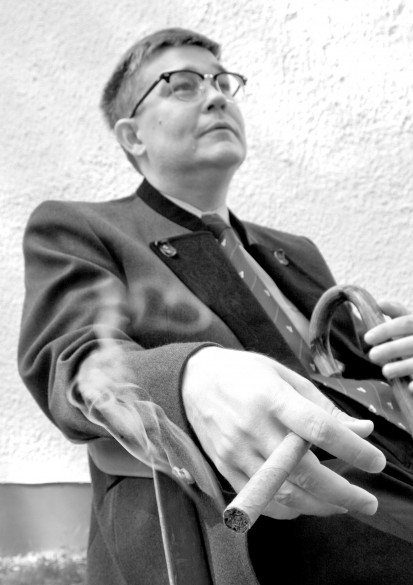
Kai Murros, Finnish intellectual and patriot from Helsinki
“O you who love the Lord, hate evil!” Psalm 97:10
“The fear of the Lord is hatred of evil.” Proverbs 8:13
“[There is] a time to love, and a time to hate.” Ecclesiastes 3:8
“Hate” is a dirty word, at least in modern times. Everywhere we are flooded with anti-hate messages. Not only is classical hate considered the gravest of sins, but the definition of hate has been expanded to include mere opposition to a thing and used as the foundation for a multitude of modern sins. The stigma attached to the faux sins of racism, sexism, bigotry, homophobia, Islamophobia, xenophobia, antisemitism, and the like is based entirely on the premise that opposition is hate and hate is automatically wrong. Instead, we are instructed to embrace love, love of everybody and everything; except for hate itself, you have to hate hate. And yet it is impossible to love without hate. For if you truly love something, then you must hate those things which would harm or destroy it. If you hate nothing, then you must also necessarily love nothing. If anyone were to ever truly achieve a hate-free existence, then he would be reduced to an entirely indifferent, nihilistic, inhuman shell. Even the anti-haters hate. They love the idea of the Marxist anti-utopia – of men stripped of their group identities and borders, of the complete equality of the lowest common denominator, where the masses of humanity are but multi-colored Lego blocks that can be mixed and matched without consequences. And thus these anti-haters must hate all those that stand in the way of this, all those who champion excellence, hierarchy, heritage, borders, diversity, and identity. So the question is not “do you hate or not?”, but “what do you hate?” Do you hate the evil which we as Christians are commanded to hate? And are not the forces seeking to destroy our people and civilization a worthy target of our righteous hatred?
Sin is the antithesis of virtue. That moral principle in the reason which makes us desire the reward of righteousness is one and the same with that which makes us crave the due punishment of wickedness; moral approval of virtue and moral indignation against evil are not effluences of two principles in the reason, but of one only. They are differentiated solely by the opposition of the two contrasted objects. The sincere approbation of the good necessitates moral indignation against the evil, because the objects of the two sentiments are opposites. Everybody thinks thus. Nobody would believe that man to be capable of sincere moral admiration for good actions who should declare himself incapable of moral resentment towards vile conduct.
-R.L. Dabney
Christ Our Penal Substitute, pp. 48-49
It was not part of their blood,
It came to them very late,
With long arrears to make good,
When the Saxon began to hate.They were not easily moved,
They were icy — willing to wait
Till every count should be proved,
Ere the Saxon began to hate.Their voices were even and low.
Their eyes were level and straight.
There was neither sign nor show
When the Saxon began to hate.It was not preached to the crowd.
It was not taught by the state.
No man spoke it aloud
When the Saxon began to hate.It was not suddently bred.
It will not swiftly abate.
Through the chilled years ahead,
When Time shall count from the date
That the Saxon began to hate.–Rudyard Kipling
| Tweet |
|
|
|




